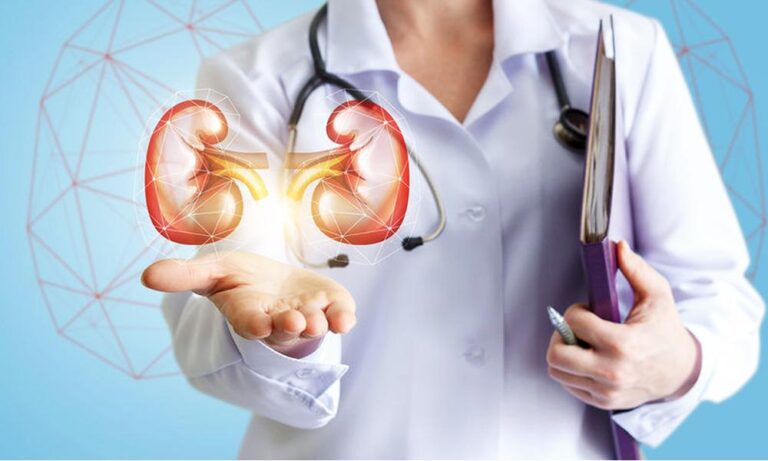Nephrology
Nephrology is a medical specialty that focuses on the diagnosis, treatment, and management of kidney-related conditions and diseases. The word “nephrology” is derived from the Greek word “nephros,” which means kidney, and “logia,” which means the study of.
The kidneys play a crucial role in maintaining the body’s overall health. They filter waste products and excess fluid from the blood, regulate blood pressure, maintain electrolyte balance, produce hormones, and assist in the production of red blood cells. When the kidneys are affected by disease or dysfunction, it can lead to a wide range of health problems. Georgian Superspeciality Hospital

Nephrology treatment
Nephrology treatment focuses on diagnosing and managing kidney-related disorders and diseases. Nephrologists, specialized physicians in this field, employ various strategies to provide comprehensive care to patients with kidney problems. The treatment options in nephrology encompass a broad range of approaches, including medication management, dietary modifications, and lifestyle changes. Nephrologists may also prescribe dialysis, a procedure that filters waste and excess fluid from the blood when the kidneys are unable to perform this function adequately. For patients with end-stage renal disease, kidney transplantation may be considered as a viable treatment option. Nephrology treatment aims to preserve kidney function, improve quality of life, and minimize complications associated with kidney disorders, ensuring patients receive personalized care tailored to their unique needs. Georgian Superspeciality Hospital
Dialysis
Dialysis is a medical procedure that is used to perform the functions of the kidneys when they are no longer able to do so effectively. It is primarily used as a treatment for end-stage renal disease (ESRD) or chronic kidney failure.
The kidneys play a vital role in filtering waste products, excess fluids, and toxins from the bloodstream, as well as regulating electrolyte levels and maintaining fluid balance in the body. When the kidneys fail, waste products and fluids accumulate in the body, leading to serious health complications.
Dialysis works by artificially removing waste products and excess fluids from the blood, restoring the balance of electrolytes and removing toxins. There are two main types of dialysis: hemodialysis and peritoneal dialysis.
